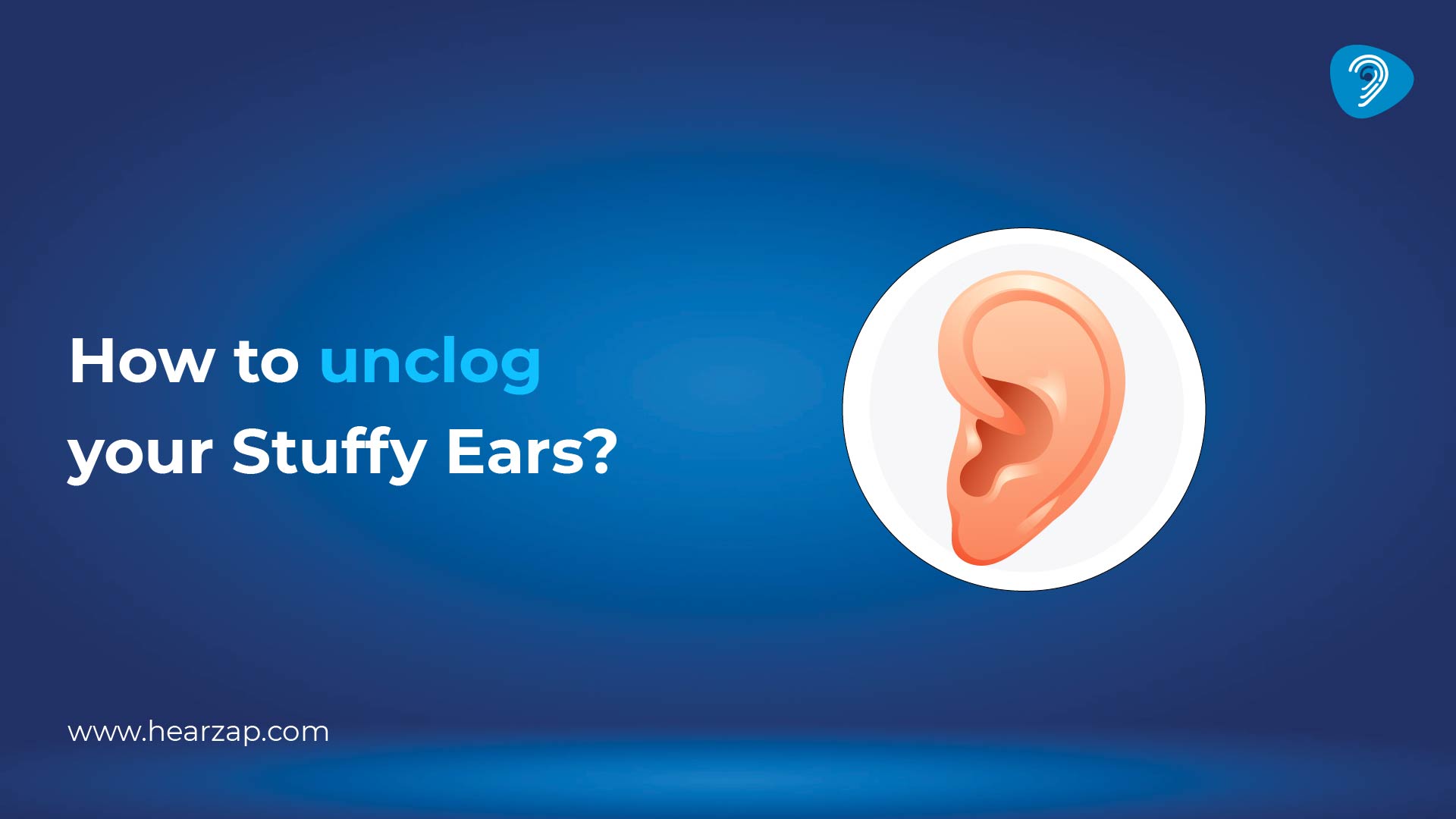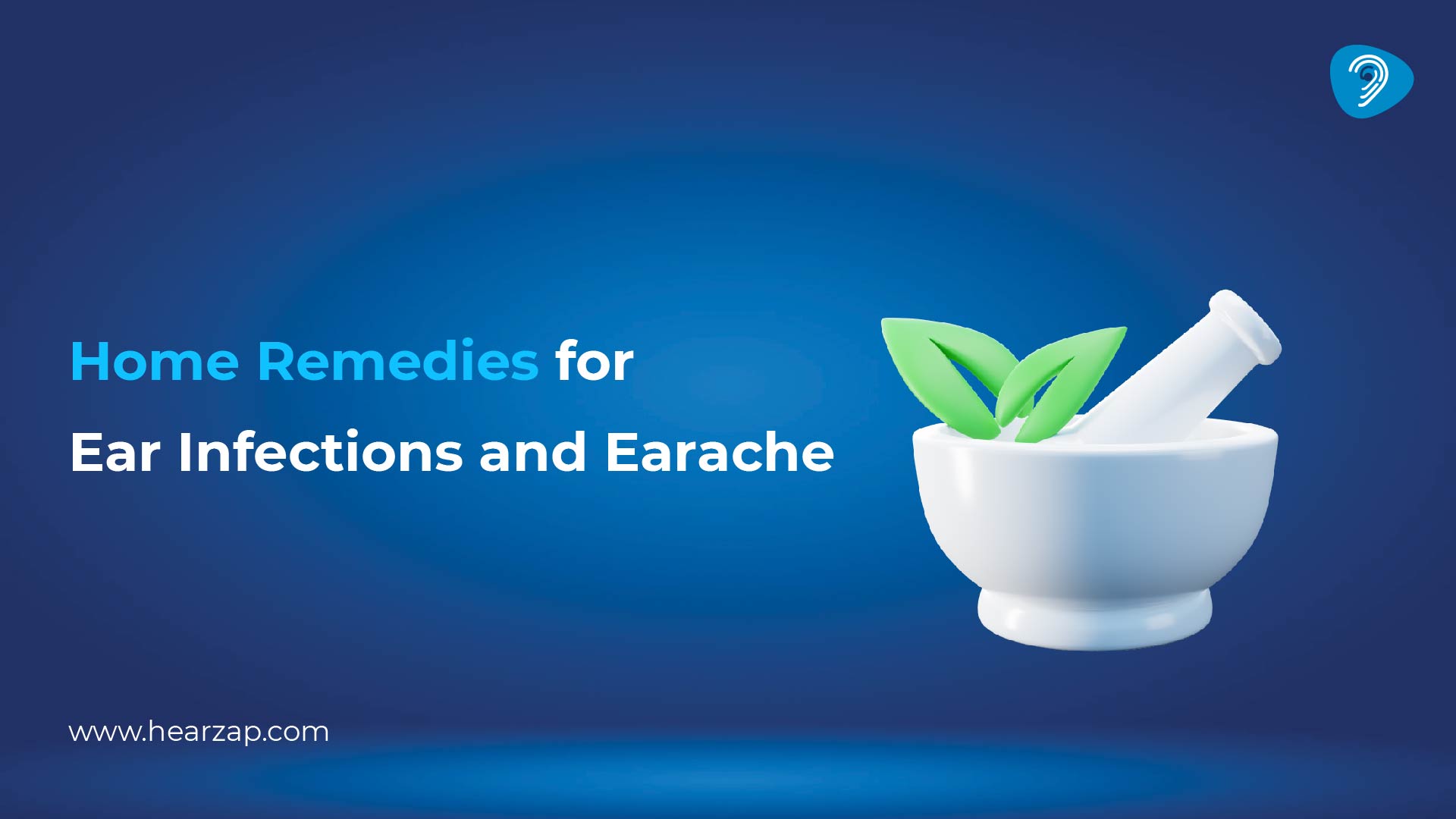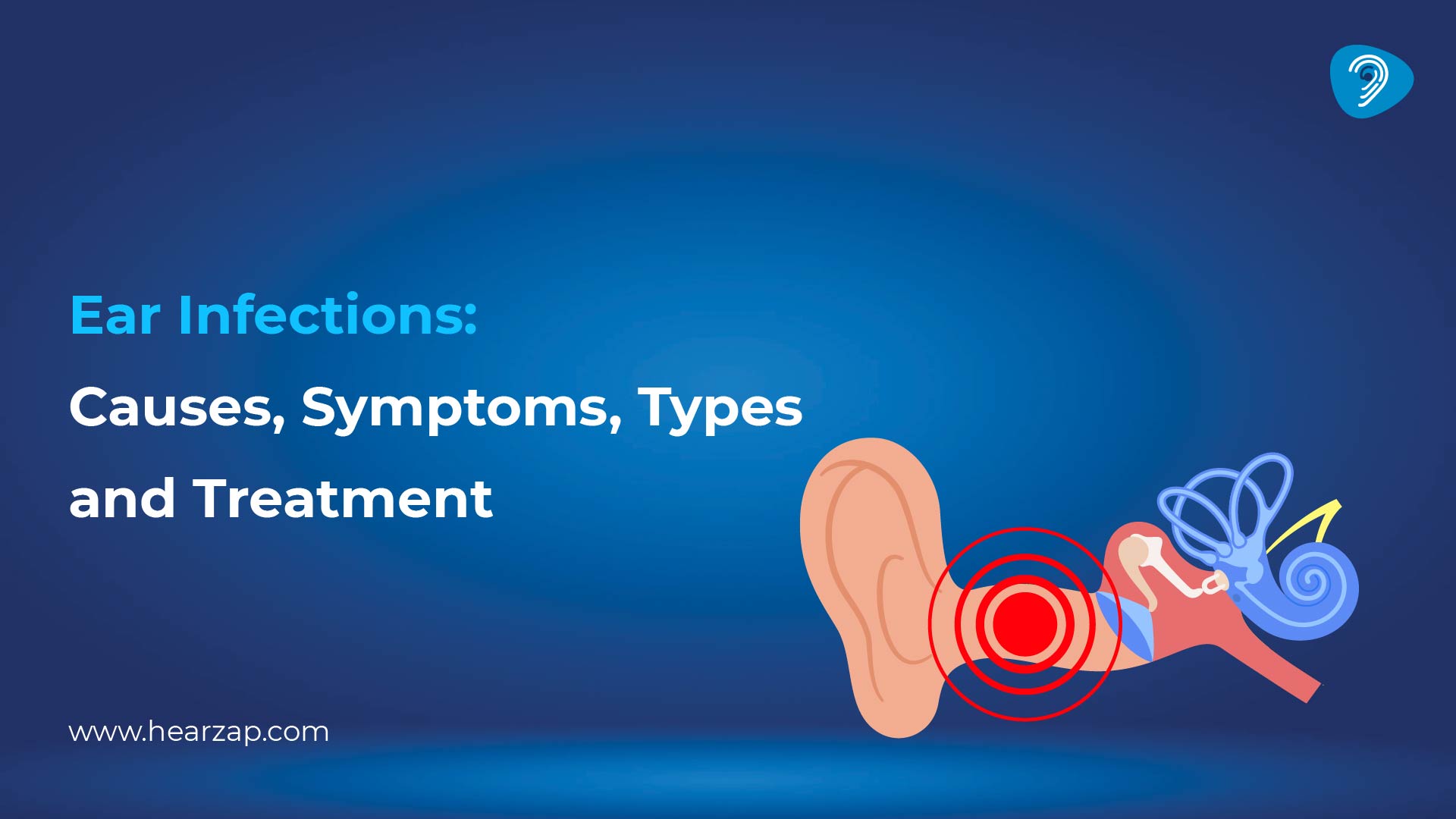Generic
How to Unclog Your Ears: Simple and Effective Tips
By Team Hearzap | Sept. 3, 2024

Blockages in the hearing may result in irritation, as they can complicate the process of detecting and experiencing happiness. If you are experiencing ear pain due to allergies, a cold, or fluctuations in air pressure, there are a few straightforward methods to alleviate your discomfort and cleanse your ears.
1. Yawn and Inhale
The rear of the pharynx is connected to the middle ear by the Eustachian tubes. By inhaling and exhaling, you may independently extend them. The flow of fluid and pressure in the cranium is regulated by these vessels. As you exhale or ingest, the muscles that encircle the Eustachian canals constrict.
This maintains a consistent pressure and allows for the movement of air. The digestive process commences with the simple act of swallowing saliva, consuming liquids, or consuming food. Attempt to yawn by inhaling deeply and expanding your lips widely. Even during a mimicked exhalation, the Eustachian ducts may dilate.
2. Indulging in chewing gum
The Eustachian canals remain open as a result of the increased frequency of ingesting that gum and confectionery consumption induce. This may alleviate the congestion and discomfort in your ears. To prevent excessive sugar intake, consume sugar-free gum for a brief period. Consume firm candies or lozenges to facilitate digestion and stimulate salivation.
3. The Valsalva Manoeuvre
Gently discharge air into your nostrils while maintaining your eyes closed to perform the Valsalva method. By doing so, the pressure within the ears can be balanced by forcing air into the Eustachian canals. Divers and pilots employ this frequently to mitigate fluctuations in their auditory pressure.
Take a deep breath, tense your lips, and use your fingers to press your nostrils together. Subsequently, gently exhale through your nostrils. Your earbuds should experience a sensation of being compressed. If you experience discomfort or distress as a result of inhaling too forcefully, discontinue. Hearing impairment may result from excessive blowing.
4. Inhaling vapour
By inhaling steam, the nasal passages and Eustachian tubes are moistened, and mucus is released, thereby facilitating drainage and alleviating congestion. Furthermore, it has the potential to reduce edema in the nasal tissues. Boil the water and then transfer it to a basin. To collect the vapour, place your face over the receptacle and cover your head with a handkerchief.
Allow yourself to inhale thoroughly through your nostril for a period of time. You may also inhale the vapour from a heated shower. Furthermore, this may alleviate respiratory and hearing issues.
5. Consume an adequate amount of water
Maintaining hydration facilitates the removal of mucus from the Eustachian canals and nostrils. This may alleviate nasal congestion and cleanse your airways. It is recommended that you consume eight containers of water each day. If you reside in a humid climate or are employed, it is recommended that you consume an increased amount of water. Consume an increased amount of liquids that promote hydration, including clear stews, broths, and infusions of therapeutic botanicals.
6. Over-the-counter decongestants
By decreasing edema in the nasal passages and Eustachian tubes, over-the-counter decongestants have the capacity to alleviate symptoms of ear pressure and congestion. They are available in a variety of forms, including nasal drops, tablets, and beverages. Review the placard and adhere to the instructions provided. To prevent the recurrence of congestion, refrain from using a decongestant nasal spray for more than a few days at a time.
Thoroughly review the dosage guidelines, and refrain from exceeding the recommended amount. Schedule an appointment with your physician if you are experiencing any health issues or are currently taking any medications.
7. Apply a compress
Applying a warm compress to the injured ear may facilitate the opening of the Eustachian canals, alleviate discomfort, and improve blood flow. This could potentially alleviate traffic congestion and enhance the flow of traffic. After immersing a new towel in tepid water for a period of time, remove any excess moisture by squeezing it. Cover the affected ear with a tepid towel for a period of five to ten minutes. If necessary, execute it on a daily basis.
8: Other habits to stop
Cigarette smoke, contaminants, and potent compounds can irritate the Eustachian tubes and nasal passages, resulting in discomfort and stuffiness. Your nasal passages will remain unobstructed if you refrain from being in the presence of these irritants. Maintain a safe distance from individuals who smoke or remain in close proximity to those who do. Install air filters in each room of your residence to enhance the quality of the indoor air. Do not expose yourself to allergens, cleaning supplies, or strong odors that may obstruct your nasal passages.
9. See an audiologist
If home remedies are unsuccessful or if you are experiencing severe discomfort, hearing loss, or a chronic ear blockage, it is recommended that you consult with an audiologist. They are capable of identifying the root causes and administering appropriate treatment to patients. If you experience severe ear distress or pressure, if you routinely encounter obstructed ears, if your symptoms persist for more than a week, or if you abruptly lose a significant amount of hearing, it is imperative that you seek medical attention.
Conclusion
These methods can often help clear up stuffy ears and make you feel better. Some simple things can help a lot, like chewing gum, swallowing, breathing in steam, and taking over-the-counter decongestants. You should see an expert if you are still having hearing issues or if the problem doesn't go away. They can give you professional advice and care to make sure your ears stay healthy.
Contact us
We are here for all your hearing needs, from hearing tests to hearing aids. Fill out the form below, and we will give you a call soon.
Please enter a valid mobile number with 10 digits.
Recent Blogs
By None | Dec. 26, 2025
By None | Dec. 23, 2025
By None | Dec. 22, 2025
By None | Dec. 20, 2025
By None | Dec. 19, 2025











